Processing Your Payment
Please do not leave this page until complete. This can take a few moments.
- News
-
Editions
View Digital Editions
Biweekly Issues
- December 1, 2025
- Nov. 17, 2025
- November 03, 2025
- October 20, 2025
- October 6, 2025
- September 22, 2025
- + More
Special Editions
- Lists
- Viewpoints
-
Our Events
Event Info
Award Honorees
- Calendar
- Biz Marketplace
Nordic Aquafarms names construction managers for $150M Belfast project
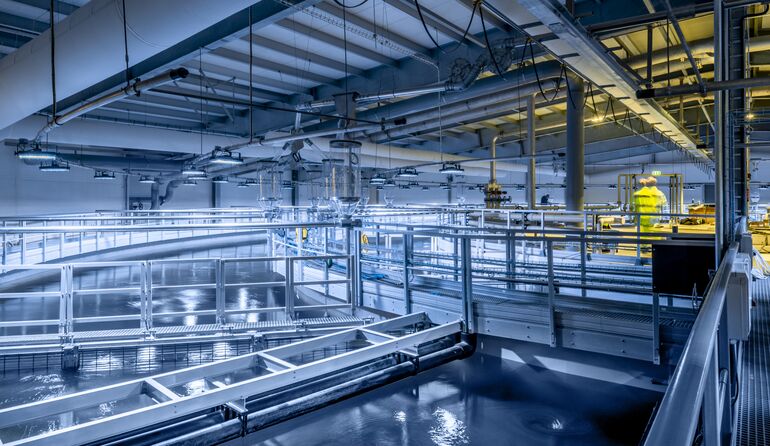 Courtesy / Nordic Aquafarms Inc.
A interior view of Nordic Aquafarm's land-based aquaculture facility in Frederikstad, Norway. The company, which is planning to build a land-based salmon farm in Belfast, has namedGilbane Building Co. and Landry/French Construction Selected as construction managers for that project.
Courtesy / Nordic Aquafarms Inc.
A interior view of Nordic Aquafarm's land-based aquaculture facility in Frederikstad, Norway. The company, which is planning to build a land-based salmon farm in Belfast, has namedGilbane Building Co. and Landry/French Construction Selected as construction managers for that project.
Nordic Aquafarms Inc. has named Gilbane Building Co. and Landry/French Construction as its construction managers for the land-based salmon farm that will be built on 54 acres off Route 1 in Belfast.
Construction on the facility — to be built in two phases and which in aggregate would be 850,000 square feet — would begin upon approval of submitted permit applications. It will be built in two phases, with the first phase targeted for completion in 2021.
Based in Providence, R.I., with 48 offices worldwide, Gilbane Building Co. has been a construction manager in northern New England for nearly 50 years. Clients have included Bank of America, the University of New Hampshire and Concord Hospital. Landry/French is based in Scarborough and provides construction management, design/build, and general contracting services to a range of clients. Earlier this week, Colby College announced that Landry/French will manage construction of its downtown hotel.
Erik Heim, president of Nordic Aquafarms Inc., said Gilbane brings to the Belfast project particular expertise in building food production facilities.
”We are committed to delivering high-quality seafood with low environmental impact and take pride in the sustainable practices embedded into every facet of our business," he said. "By partnering with Gilbane, an experienced builder of food production facilities and a company that shares our commitment to environmental stewardship, we’re confident that the Belfast site will serve as the future of land-based seafood production in the United States. We are excited for the opportunity to expand the relationship with Gilbane as a national service provider to include future projects as Nordic Aquafarms grows."
The proposed layout of the site features nine buildings, including hatcheries, freshwater juvenile facilities (smolt buildings), grow-out facilities, and peripheral support facilities such as office space, a central utility plant, and a water treatment plant.
Electrical infrastructure will include a substation, back-up generation, and fish processing. In managing this unique project, Gilbane will draw upon its experience constructing Constellation Brands’ 983-acre brewery expansion project in Mexicali, Mexico, as well as the 260,000 square foot Kerry Innovation and Technical Center. Located on a 124-acre parcel in Beloit, Wisc., this campus for Kerry’s worldwide food production houses over 800 employees and is LEED-NC Gold certified.
“Nordic Aquafarms’ innovative land-based farming method is poised to transform the U.S. market for fresh farmed fish," said Mike O’Brien, head of Gilbane’s Boston and northern New England offices. "As a leading builder of manufacturing facilities in the U.S., Gilbane will leverage our vast experience in constructing complex and varied food production facilities in making that mission a reality while Landry/French, a leading contractor in Maine, will bring the local knowledge and key relationships to this important project. We share Nordic Aquafarms’ commitment to sustainability and minimal environmental impact and are extremely excited to break ground on this pioneering project.”
About Nordic Aquafarms
Nordic Aquafarms is an investor in and developer of land-based aquaculture internationally, with production plants in Norway (Fredrikstad Seafood) and Denmark (Sashimi Royal and Maximus) and two projects in the United States (Maine and California). Nordic Aquafarms Inc. is its U.S. subsidiary.
Land-based production is a rapidly emerging method for sustainable production of salmon. It is based on indoor production in large tanks and water treatment systems, and its benefits include: the ability to recycle and treat water on site to reduce overall water consumption, recycling of waste resources, the prevention of sea lice and parasites, the elimination of fish escape into the sea and co-mingling with wild species, the application of renewable energy concepts, and a shorter distance to market for a high quality, fresh product, reducing the carbon footprint of air and land transport.
About Gilbane Building Co.
Gilbane Building Co. provides a full slate of construction and facilities-related services — from pre-construction planning and integrated consulting capabilities to comprehensive construction management, general contracting, design-build and facility management services — for clients across various markets. Founded in 1873 and still a privately held, family-owned company, Gilbane has 48 office locations worldwide. Its clients have included Bank of America, the University of New Hampshire and Concord Hospital.
About Landry/French Construction Co.
Landry/French Construction Co. is a commercial building contractor based in Scarborough that provides construction management, design/build, and general contracting services to a range of clients including healthcare, commercial, corporate, financial, housing, and education. Awards and recognition include three AGC Build Maine Awards; Best Places to Work in Maine for four consecutive years; Governor’s Award for Business Excellence; and Inc. 5000’s Fastest Growing Companies in the country (2017, 2016). Landry/French is a 100% employee-owned company.
Mainebiz web partners
Related Content

The Giving Guide
The Giving Guide helps nonprofits have the opportunity to showcase and differentiate their organizations so that businesses better understand how they can contribute to a nonprofit’s mission and work.
Learn More
Work for ME
Work for ME is a workforce development tool to help Maine’s employers target Maine’s emerging workforce. Work for ME highlights each industry, its impact on Maine’s economy, the jobs available to entry-level workers, the training and education needed to get a career started.
Learn More
Groundbreaking Maine
Whether you’re a developer, financer, architect, or industry enthusiast, Groundbreaking Maine is crafted to be your go-to source for valuable insights in Maine’s real estate and construction community.
Learn more-
The Giving Guide
The Giving Guide helps nonprofits have the opportunity to showcase and differentiate their organizations so that businesses better understand how they can contribute to a nonprofit’s mission and work.
-
Work for ME
Work for ME is a workforce development tool to help Maine’s employers target Maine’s emerging workforce. Work for ME highlights each industry, its impact on Maine’s economy, the jobs available to entry-level workers, the training and education needed to get a career started.
-
Groundbreaking Maine
Whether you’re a developer, financer, architect, or industry enthusiast, Groundbreaking Maine is crafted to be your go-to source for valuable insights in Maine’s real estate and construction community.
ABOUT
NEW ENGLAND BUSINESS MEDIA SITES
No articles left
Get access now
In order to use this feature, we need some information from you. You can also login or register for a free account.
By clicking submit you are agreeing to our cookie usage and Privacy Policy
Already have an account? Login
Already have an account? Login
Want to create an account? Register
Get access now
In order to use this feature, we need some information from you. You can also login or register for a free account.
By clicking submit you are agreeing to our cookie usage and Privacy Policy
Already have an account? Login
Already have an account? Login
Want to create an account? Register
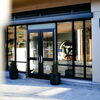

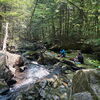

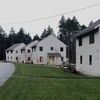
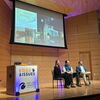
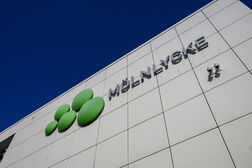




0 Comments